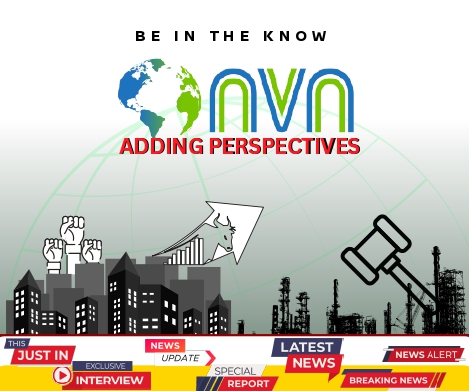For freshers looking to start a career in the software industry, it’s essential to consider job roles that are in demand, and have growth potential. These are top trending jobs for freshers.


Primary Trending Software Jobs for freshers
- Software Developer/Engineer: This is a foundational role where you write code to develop software applications. Specializations include web development, mobile app development (iOS/Android), and backend development.
- Front-End Developer: Front-end developers focus on creating the user interface, and user experience of websites, and web applications. Proficiency in HTML, CSS, and JavaScript is essential.
- Data Analyst: Data analysts collect, clean, and analyze data to provide insights, and support decision-making. Skills in data analysis tools like Python or R, and data visualization tools are important.
- Quality Assurance (QA) Tester: QA testers ensure the quality, and functionality of software by identifying, and reporting bugs, and issues. Familiarity with testing frameworks, and methodologies is valuable.
- Cloud Engineer: Cloud engineers work with cloud computing platforms like AWS, Azure, or Google Cloud to design, deploy, and manage cloud infrastructure, and services.
- DevOps Engineer: DevOps engineers bridge the gap between development, and operations, focusing on automating processes, continuous integration/continuous deployment (CI/CD), and infrastructure as code.
- Machine Learning Engineer: Machine learning engineers build, and deploy machine learning models, and algorithms for tasks such as natural language processing, computer vision, and recommendation systems.
Secondary Trending Software Jobs for freshers
- Cybersecurity Analyst: Cybersecurity analysts protect computer systems, and networks from security breaches, and threats. Understanding cybersecurity principles, and tools is crucial.
- Full-Stack Developer: Full-stack developers are proficient in both front-end, and back-end development, allowing them to work on all aspects of a web application.
- UI/UX Designer: UI/UX designers focus on creating user-friendly interfaces, and experiences for websites, and applications. Skills in design tools, and user research are important.
- Data Engineer: Data engineers design, and maintain data pipelines, and architecture, ensuring that data is collected, stored, and processed efficiently for analytics, and business needs.
- Blockchain Developer: Blockchain developers work on decentralized applications (DApps), and smart contracts using blockchain technology. Proficiency in blockchain platforms like Ethereum is valuable.
- Mobile App Developer: Mobile app developers specialize in creating applications for smartphones, and tablets, either for iOS (Swift) or Android (Java/Kotlin).
- Artificial Intelligence (AI) Developer: AI developers work on advanced AI, and deep learning projects, developing intelligent systems, and algorithms.
- Robotic Process Automation (RPA) Developer: RPA developers build software robots to automate repetitive tasks, and processes in organizations.
Top 20 Important Topics to prepare to get a Software Job as a Fresher
To secure a software job, you need a combination of technical knowledge, practical skills, and personal attributes. Here are some essential topics, and areas of expertise that can help you get a software job –
- Programming Languages: Proficiency in one or more programming languages is crucial. Common languages include Python, Java, JavaScript, C++, and C#. Depending on the job, you may need expertise in a specific language.
- Data Structures and Algorithms: Understanding data structures (e.g., arrays, linked lists, trees), and algorithms (e.g., sorting, searching) is fundamental for software development. This knowledge is often tested in technical interviews.
- Web Development: For front-end web development roles, you should be familiar with HTML, CSS, and JavaScript. Back-end roles may require knowledge of server-side languages like Node.js, Ruby on Rails, or PHP.
- Database Management: Understanding databases, including SQL (Structured Query Language), and NoSQL databases like MongoDB, is essential for storing, and retrieving data in applications.
- Version Control: Proficiency with version control systems like Git is crucial for collaborating on code, and tracking changes.
- Software Development Life Cycle (SDLC): Familiarize yourself with the various phases of SDLC, including requirements gathering, design, development, testing, deployment, and maintenance.
- Frameworks and Libraries: Learn popular software development frameworks, and libraries relevant to your chosen field, such as React, and Angular for front-end development, or Django, and Ruby on Rails for back-end development.
- Object-Oriented Programming (OOP): Understand OOP principles like encapsulation, inheritance, and polymorphism, which are essential for creating modular, and maintainable code.
- Operating Systems: Gain a basic understanding of operating systems, including file systems, memory management, and process control.
- Web Services and APIs: Learn how to work with web services, and APIs to integrate external data, and functionalities into your applications.
- Testing and Debugging: Develop skills in unit testing, debugging techniques, and quality assurance practices to ensure the reliability of your code.
- Security Awareness: Be aware of common security vulnerabilities, and best practices for secure coding, especially if you’re working on web applications.
- Data Management: Understand how to work with data, including data modeling, data warehousing, and data integration techniques.
- Networking Basics: A basic understanding of networking concepts, protocols, and communication is valuable, especially for roles involving networked applications.
- Soft Skills: Effective communication, teamwork, problem-solving, and time management skills are critical in a software development job. Employers often value these skills as much as technical expertise.
- Domain Knowledge: Depending on the industry or domain you’re interested in (e.g., finance, healthcare, e-commerce), domain-specific knowledge may be necessary to understand the context, and requirements of your software projects.
- Continuous Learning: The technology landscape is constantly evolving. Stay up-to-date with new tools, languages, and trends by engaging in continuous learning through online courses, books, and tutorials.
- Portfolio and Projects: Build a portfolio of personal, and collaborative projects to showcase your skills, and practical experience. Having real-world examples of your work can impress potential employers.
- Certifications: Consider obtaining relevant certifications, such as AWS Certified Developer, Certified ScrumMaster (CSM), or Microsoft Certified: Azure Developer Associate, to validate your expertise.
- Networking: Attend tech meetups, conferences, and online forums to connect with other professionals in the field, and learn from their experiences.
Q: What is object-oriented programming (OOP)?
A: OOP is a programming paradigm that uses objects, and classes to structure code for reusability, and maintainability.
Q: What is the purpose of version control?
A: Version control helps track changes in code, collaborate with others, and maintain a history of a software project.
Q: What is the difference between SQL, and NoSQL databases?
A: SQL databases are relational, and use structured tables, while NoSQL databases are non-relational, and use various data models.
Q: Name a popular front-end JavaScript framework?
A: React.js is a widely used front-end JavaScript library for building user interfaces.
Q: What is the software development life cycle (SDLC)?
A: SDLC is a systematic process for planning, designing, building, testing, and maintaining software applications.
Q: How can I make my software job application stand out?
A: Tailor your resume to the job, showcase your relevant skills, and projects, and write a compelling cover letter.
Q: What is the significance of networking in securing a software job?
A: Networking can help you discover job opportunities, gain referrals, and connect with professionals who can provide insights, and advice.
Q: Why is a strong online portfolio important for software job seekers?
A: An online portfolio demonstrates your skills, and showcases your work, making it easier for employers to assess your abilities.
Q: What are some common technical interview topics for software jobs?
A: Technical interviews may cover data structures, algorithms, coding challenges, system design, and problem-solving skills.
Q: How can soft skills benefit software job applicants?
A: Soft skills such as communication, teamwork, and problem-solving are essential for effective collaboration in software development teams.












